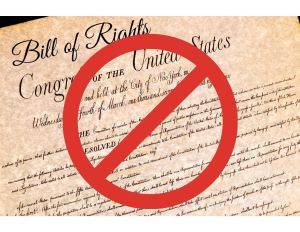Recent Blog Posts
Can Third Parties Be Held Liable for Injuries in Drunk Driving Accidents?
The simple answer to this question is “yes”. Alcohol or drug use can have a huge impact on a person’s ability to safely operate a motor vehicle. While the dangers of driving while under the influence are well-known, many people still do so. This can lead to dangerous car accidents. While a drunk driver may be held liable for injuries inflicted in these types of accidents, victims may wonder whether other parties may also be civilly or criminally liable. The answer to this inquiry is “it depends.”
Social Host Liability Laws in Wisconsin
“Social hosts” are people who serve alcohol to others, either in their home, at a venue or other place, e.g., at a work or office party.
Unlike Illinois, which is a dram shop law state, Wisconsin law provides that a person or establishment that procures, sells, dispenses, or gives away alcoholic beverages to another is generally immune from civil liability for acts that arise due to the consumption of alcohol. Wis. Stat. § 125.035(2). However, there are several important exceptions to this immunity.
Understanding Your Right to an Attorney in a Wisconsin Criminal Case
Getting arrested or charged with a crime can be extremely frightening and stressful, and it may feel like you have nowhere to turn for help and support. However, thanks to the Sixth Amendment to the United States Constitution, there is always at least one person whom you can rely on: your attorney. Among other rights, the Sixth Amendment guarantees a criminal defendant the right to “the assistance of counsel for his defense.” If you are facing charges, you should be sure to understand the full extent of the protection that this clause provides.
What Does the Right to Legal Counsel Include?
The Sixth Amendment right to legal counsel means that in a trial or court hearing related to the charges you are facing, you have the right to representation from a qualified defense attorney. Your attorney can take many important actions to protect your rights and help you avoid conviction or an unfair sentence. For example, they can speak on your behalf in opening and closing arguments, help you present evidence and testimony to demonstrate your innocence, cross-examine witnesses for the prosecution, and object to inadmissible evidence and improper trial procedure.
5 Reasons Not to Represent Yourself in Wisconsin Family Court
If you are getting a divorce or attempting to establish a child support or child custody order with your child’s other parent, you may have at least considered the idea of representing yourself throughout the legal process. Perhaps you are worried about the costs of hiring an attorney, or you may feel that you and the other party are in agreement to the extent that legal representation is not necessary. However, choosing to represent yourself can have many unexpected consequences, and it may prevent you from achieving your desired outcome. Here are five reasons why trying to represent yourself in Wisconsin family court could be the wrong decision:
Representing Yourself Is a Large Time Commitment
Is Intoxication a Valid Defense Against Criminal Charges in Wisconsin?
The intoxicating effects of alcohol and controlled substances (prescription and illegal) have been demonstrated to lower a person’s inhibitions, alter behavior, and impair a person’s mental and physical abilities, including the ability to operate motor vehicles steadily and safely. Unfortunately, alcohol and substance use sometimes lead to situations where a person is arrested on criminal charges. For example, in State v. Christen, 2021 WI 39, the Wisconsin Supreme Court held that the Second Amendment does not protect an intoxicated person's right to possession of a firearm for self-defense, in a drunken altercation with roommates inside defendant’s residence).
If you have been arrested while under the influence of drugs or alcohol, you may wonder whether your state of intoxication could be a mitigating factor or perhaps even be raised as a defense that might help avoid a conviction. At first glance, it seems reasonable that the effects of a substance on a person’s mental state would impact on specific intent and possibly absolve you of personal responsibility for your actions. However, in Wisconsin, this is only true under limited circumstances, because the legislature and courts have determined that the intoxication defense should be greatly limited on public policy grounds. Thus, it is important that you work with an experienced and knowledgeable criminal defense attorney to determine whether such a defense may apply in your case.
How Are Damages Awarded in a Wisconsin Wrongful Death Case?
In Wisconsin, injury victims have the right to file a personal injury claim seeking compensation from the negligent parties who were responsible for their damages. Unfortunately, not all injury victims survive long enough to initiate the process, let alone benefit from the compensation. However, this does not mean that there is no way of holding the negligent party accountable. The victim’s surviving family members can also pursue compensation through a wrongful death lawsuit. If you have recently lost a loved one due to someone else’s negligence, you should be sure to understand your rights to pursue financial compensation.
Protections for Minor Children of the Deceased
According to Wisconsin law, a wrongful death action must be initiated by either the personal representative of the victim’s estate, or the victim’s next of kin who is entitled to compensation. Often, this is the victim’s spouse or domestic partner. However, when the victim has children under the age of 18 at the time of their death, the court responsible for hearing the wrongful death case will seek to ensure that those children have access to the resources they need now that their parent is no longer able to provide them. When determining an appropriate amount to set aside, the court will consider factors including the children’s ages and needs, as well as the capacity of a surviving parent to provide for them.
Establishing Paternity in Wisconsin by Genetic Testing
Until recently, Wisconsin parents seeking to establish the legal paternity of a child could do so in one of three ways. Two of those methods, a Voluntary Paternity Acknowledgment and an Acknowledgment of Marital Child, require the consent of both parents, which is not easy to obtain when the parents are in disagreement. The third method, petitioning for a court hearing, can help to resolve disagreements between parents, but it may come with a significant investment of time and money on the part of the parties to the case.
However, since August 2020, a new method known as Conclusive Determination of Paternity can help parents resolve paternity cases without requiring the extensive involvement of the court. If you are an unmarried or alleged parent, it is a good idea to learn about the process of conclusive determination to understand how it could affect your case.
Common Injuries in Wisconsin Rollover Accidents
Rollover accidents can happen for a number of different reasons, and injuries suffered by vehicle occupants are often severe. Though vehicle safety features are continuing to improve in order to better protect drivers and passengers, the force of multiple impacts is still capable of injuring nearly every part of the body, potentially resulting in high medical bills and a long, difficult recovery process. If you have suffered serious injuries in a rollover car crash, it is important to determine whether you can pursue compensation from a negligent party.
Rollover Injuries Vary in Nature and Severity
The National Highway Traffic Safety Administration (NHTSA) and other research organizations have studied rollover accidents extensively over time in order to better understand their outcomes and promote measures to mitigate injuries. Through their research, they have determined that certain types of injuries are more common depending on the characteristics of the crash. Some of the most frequently occurring injuries include:
Are Wisconsin Drug Offenders Eligible for Pretrial Diversion?
The circumstances leading to criminal charges for drug possession can be complicated, and in many cases, they involve a history of substance abuse on the part of the alleged offender. The State of Wisconsin recognizes that treatment, education, and rehabilitation are often more effective responses to drug offenses than a harsh prison sentence. As such, the state allows a one-time conditional discharge and dismissal of charges for certain first-time drug offenders. This treatment option is an alternative to a prison sentence for offenders who are dependent on a controlled substance.
Some Wisconsin counties, including Milwaukee County, take these measures a step further by offering pretrial diversion programs for drug offenders. If you are facing drug charges, your attorney can help you understand whether you are eligible for one of these programs and take the necessary steps to fulfill your requirements.
What Are the Requirements of a Wisconsin Spousal Maintenance Order?
In a Wisconsin divorce, spousal maintenance or alimony is sometimes ordered to provide support for a spouse who is likely to have difficulty providing for themself without their former partner’s income, perhaps due to their health, childcare responsibilities, or lack of education and work experience. When maintenance is ordered, the paying spouse has an important legal responsibility to make the payments on time and in the full amount. However, they should also be aware of other obligations that are likely to be included in the court order.
How Is Spousal Support Paid in Wisconsin?
Typically, rather than making payments directly to their former spouse, the paying party in a maintenance order will be required to make payments to the Wisconsin Department of Children and Families (DCF) or a party designated by DCF. The recipient of the payments is responsible for ensuring that they are disbursed appropriately to the receiving party. Failure to make full, on-time payments to DCF or their designee can result in enforcement proceedings against the paying spouse.
How Do Penalties Change for Repeat OWI Offenses?
Operating while intoxicated (OWI) is a serious criminal offense, regardless of whether you have a prior history of convictions. Consequences of an OWI conviction include fines, driver’s license revocation, and a lasting criminal record, even for first-time offenders. However, the consequences can become much more severe if you are facing OWI charges a second, third, or subsequent time. If you are arrested for OWI with a previous conviction on your record, it is crucial that you hire an attorney who can help you avoid the full extent of the penalties you may face.
Second OWI Offense Penalties Depend on the Timeframe
In Wisconsin, if your second alleged OWI offense comes more than 10 years after your first conviction, the potential penalties will likely be the same as if you had no prior conviction. Namely, you may face a fine of up to $300, a $435 OWI surcharge, and revocation of your driver’s license for up to nine months, but you are unlikely to be sentenced to any period of confinement or imprisonment. However, if the second offense comes within 10 years of the first, the possible penalties become more substantial. Fines can increase to up to $1,100, the license revocation period can increase to up to 18 months, and the sentence can include up to six months in prison.

 By
By  By
By  By
By 





